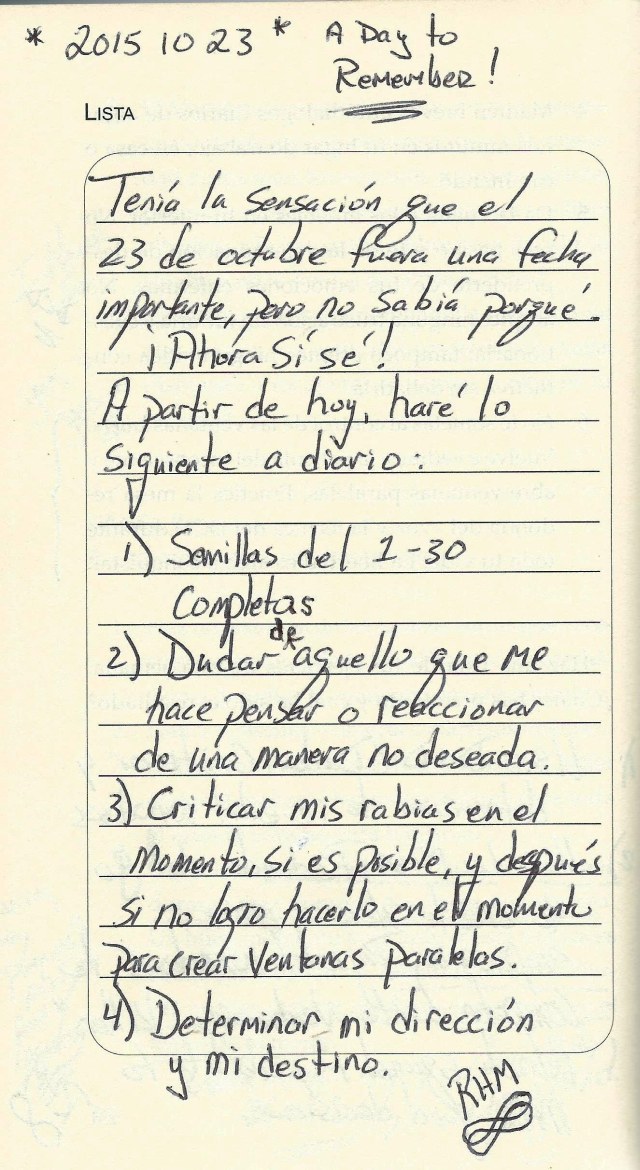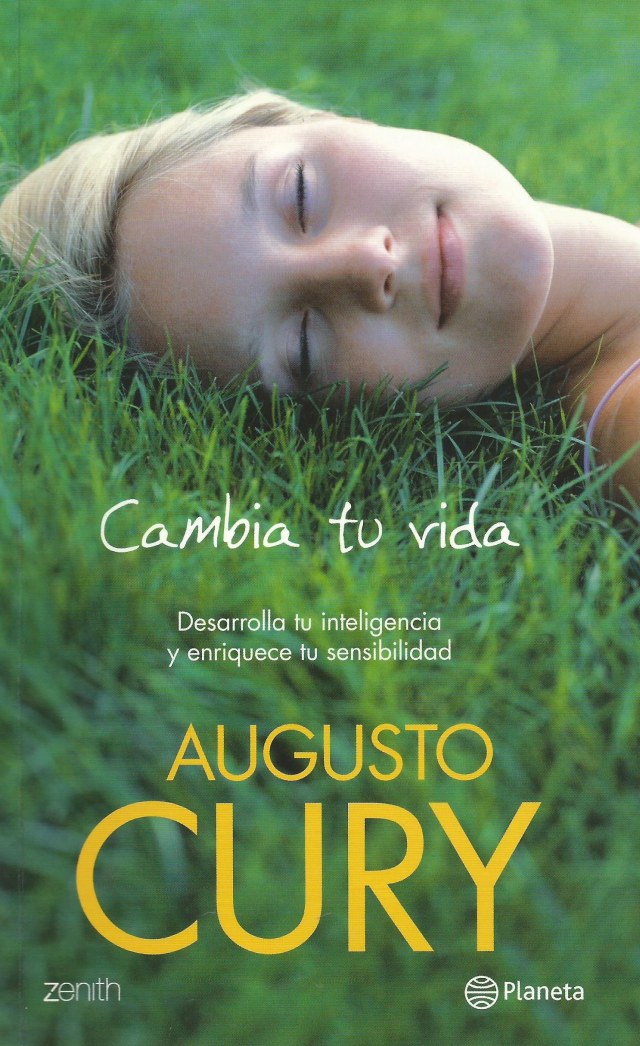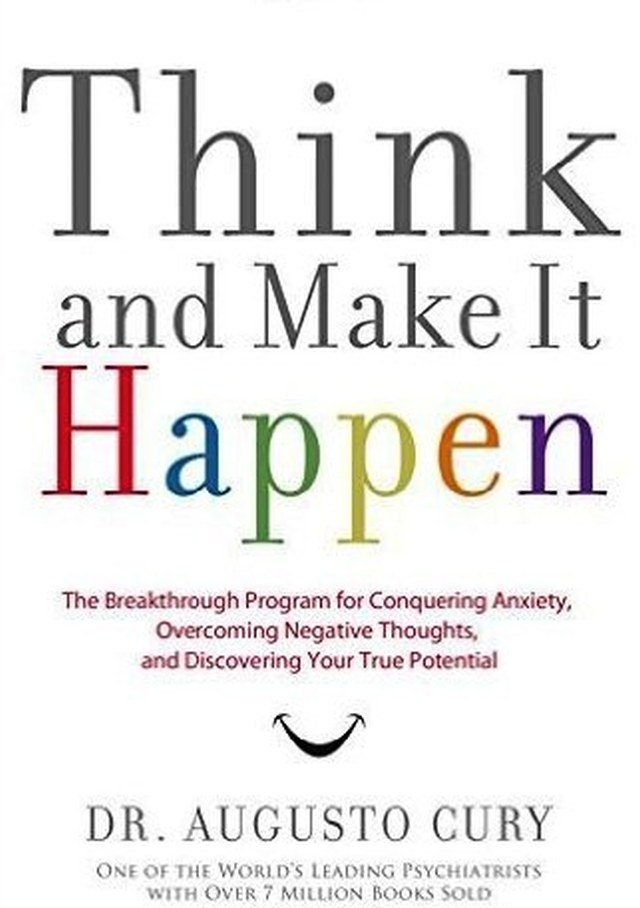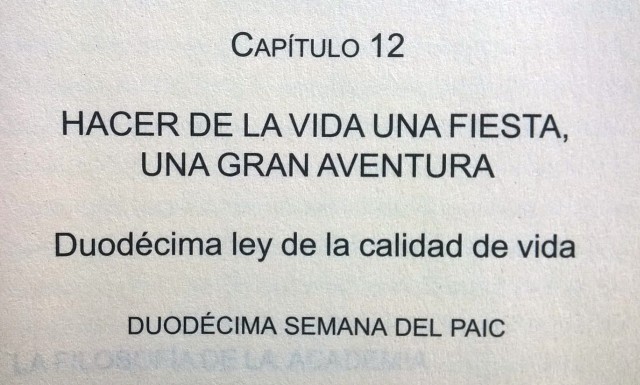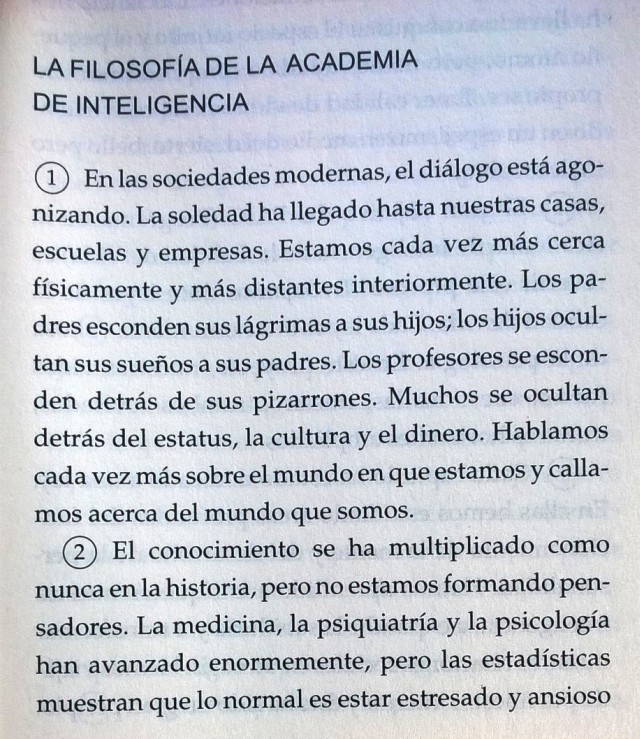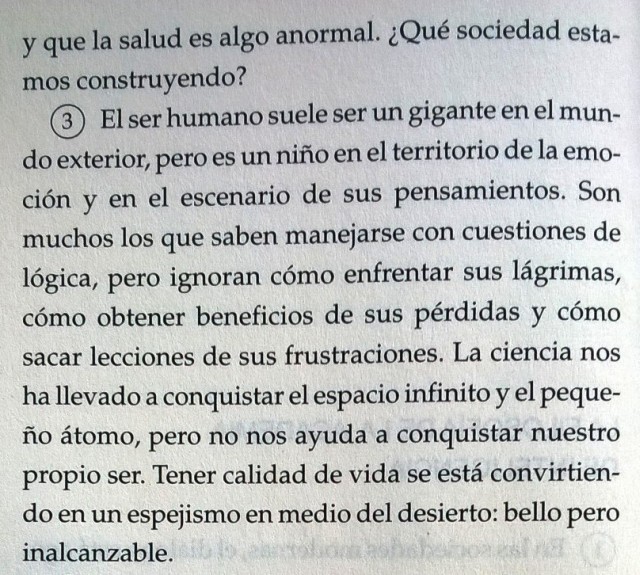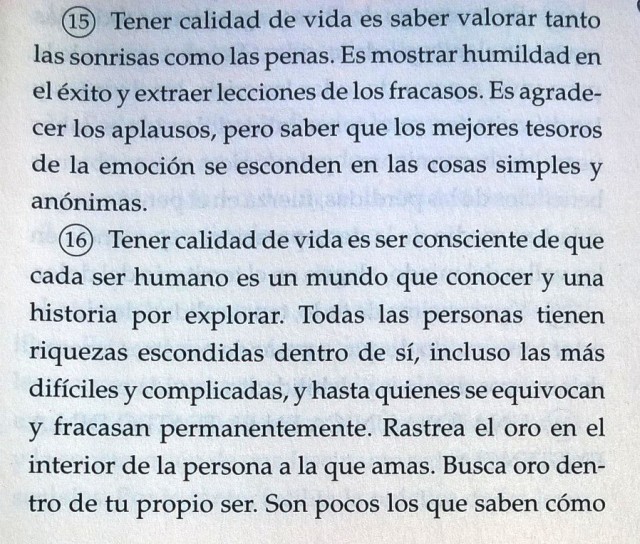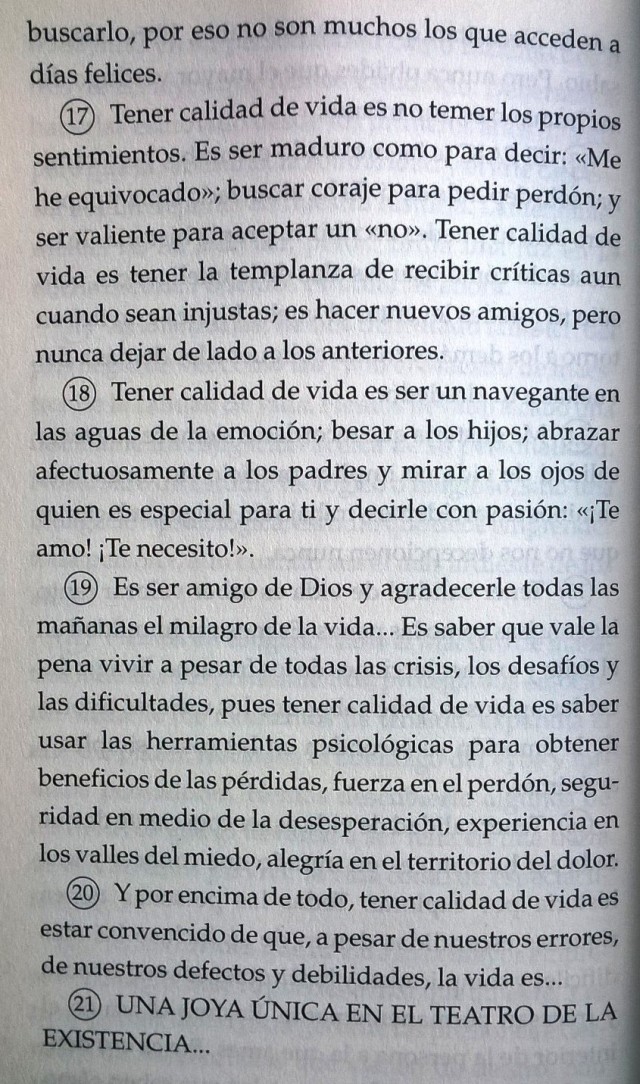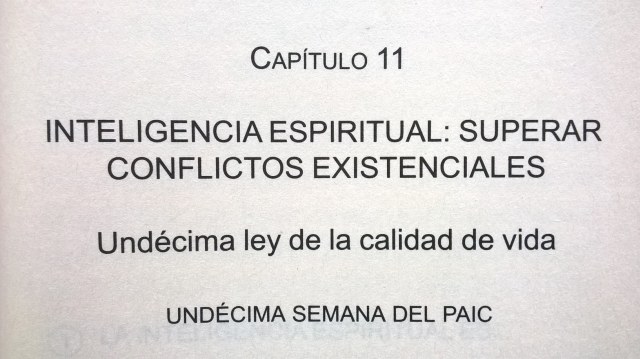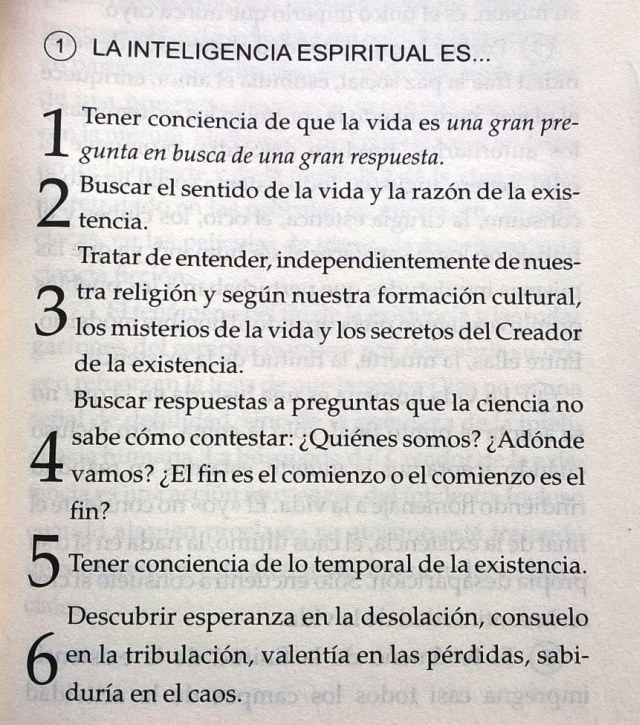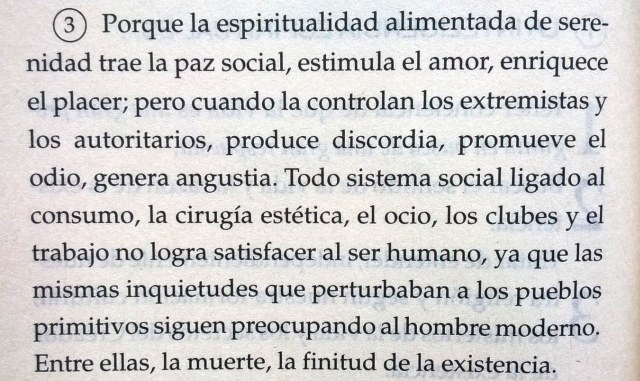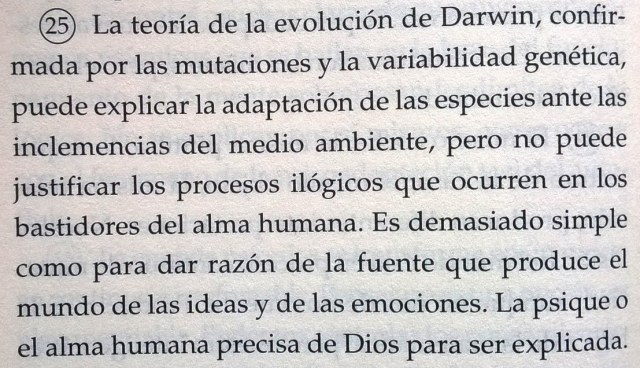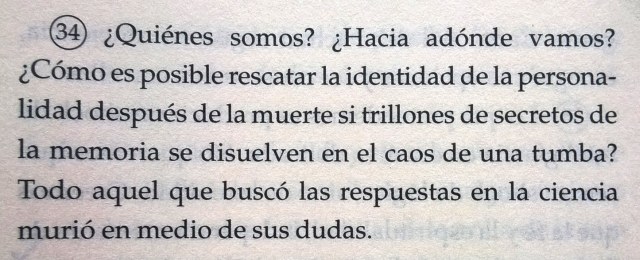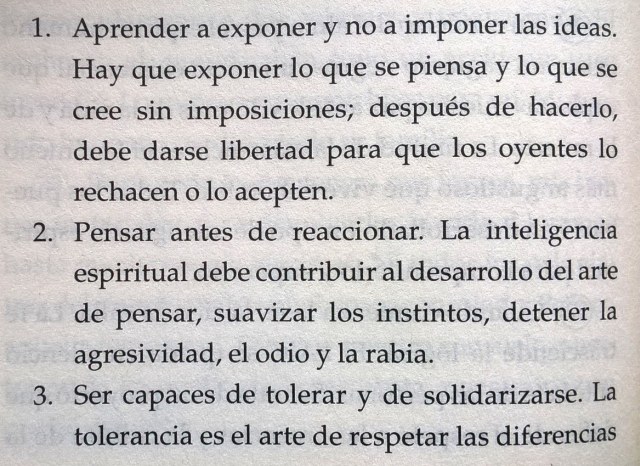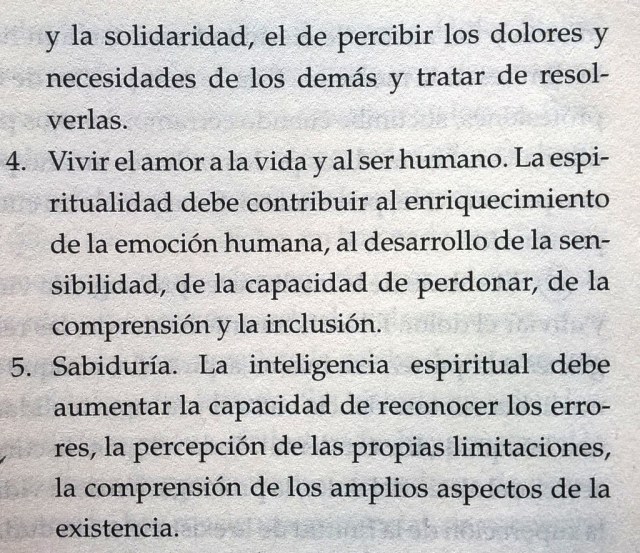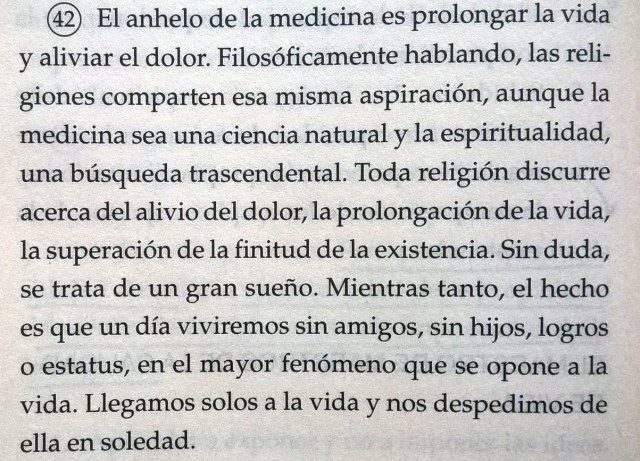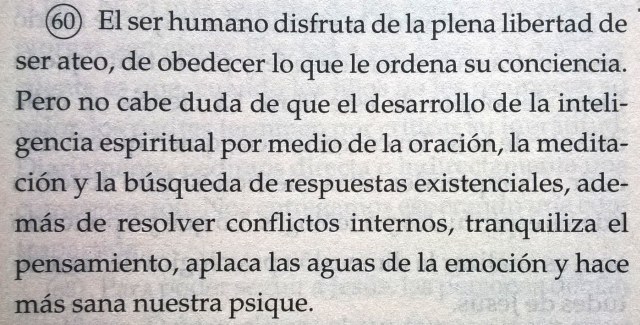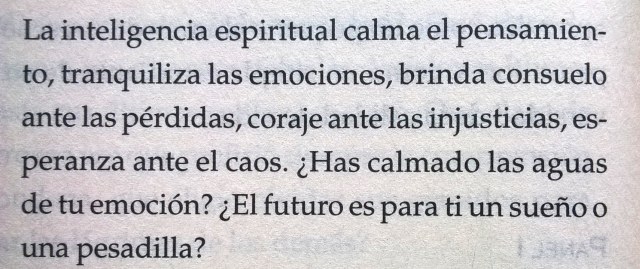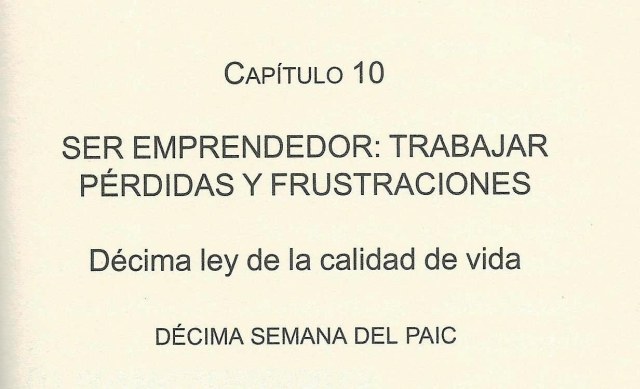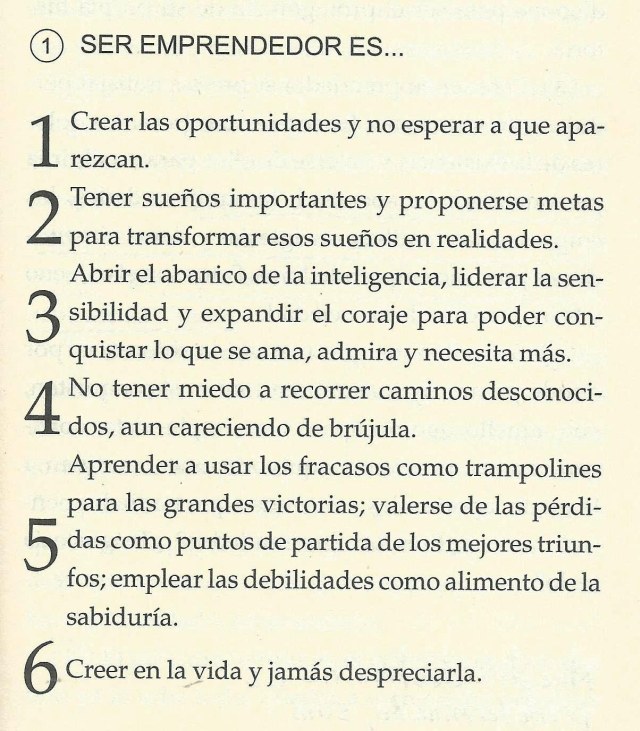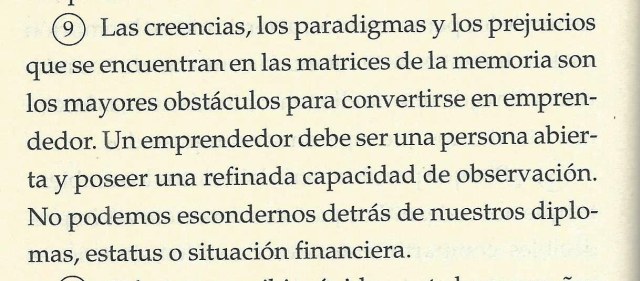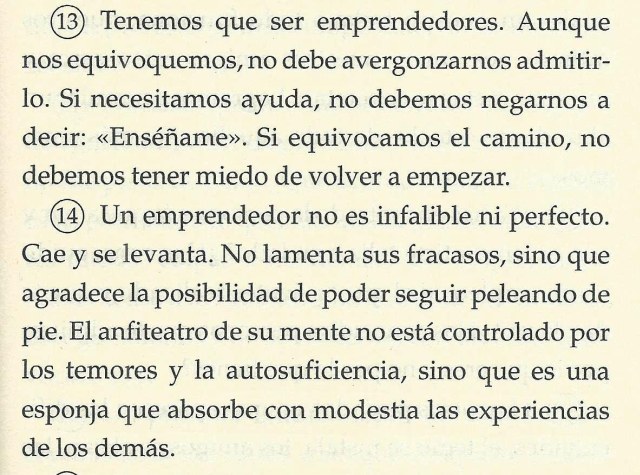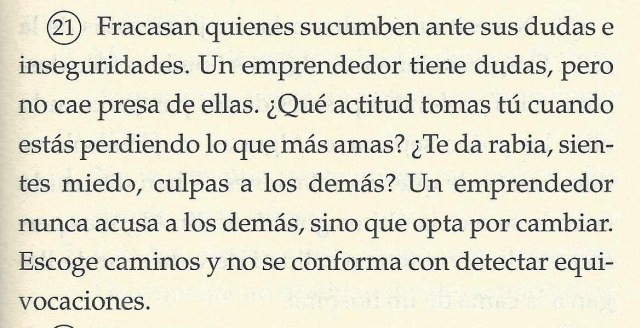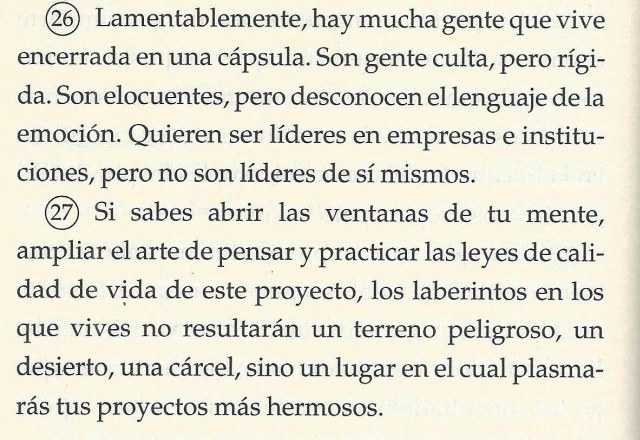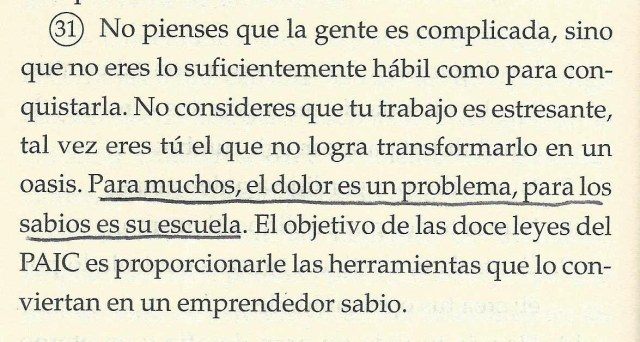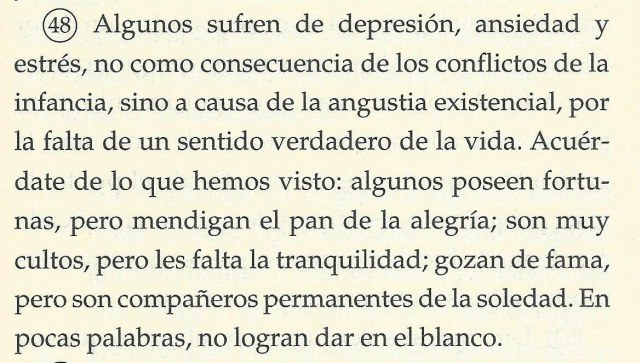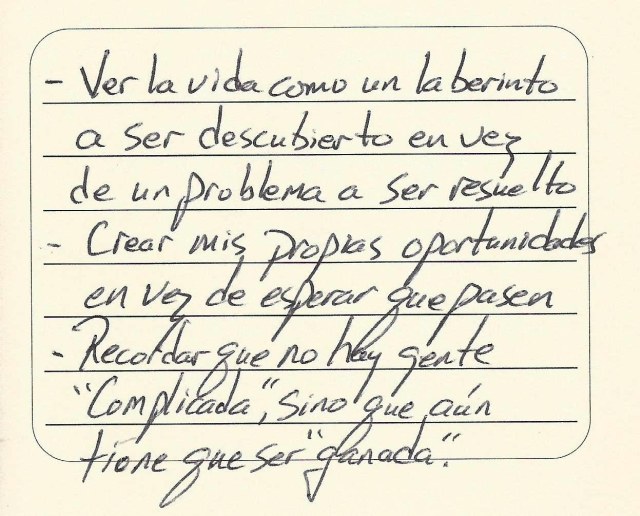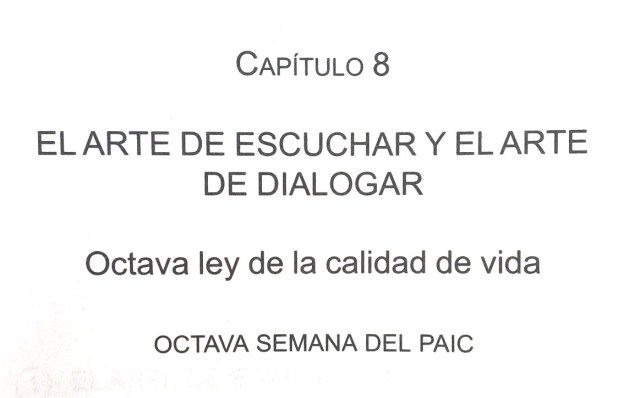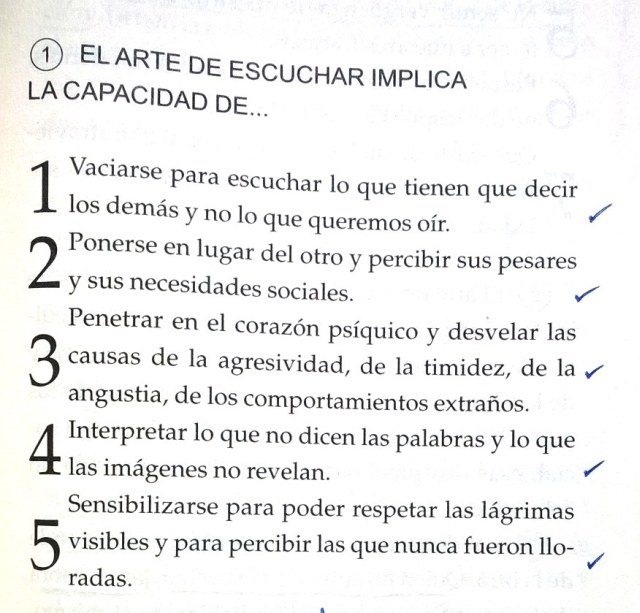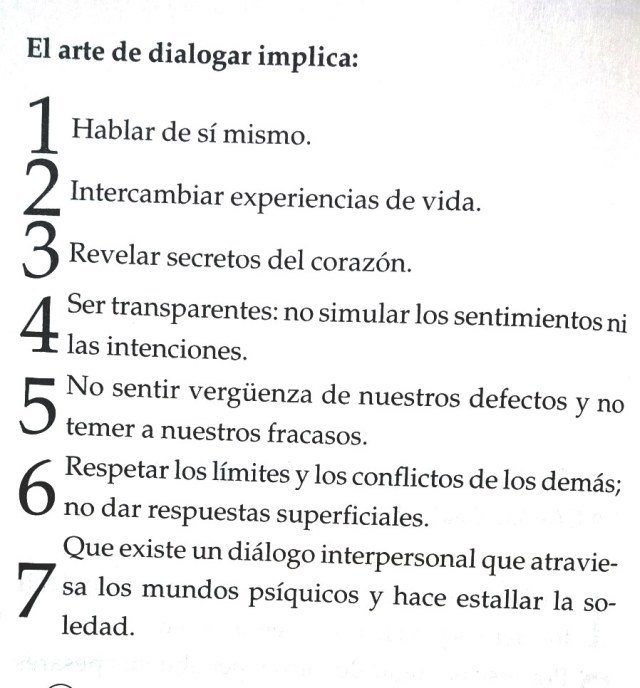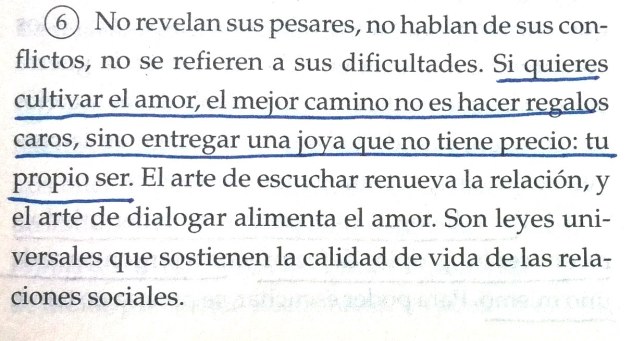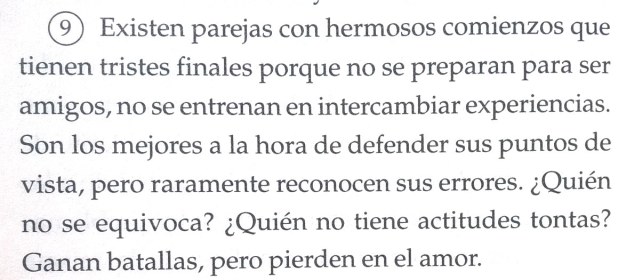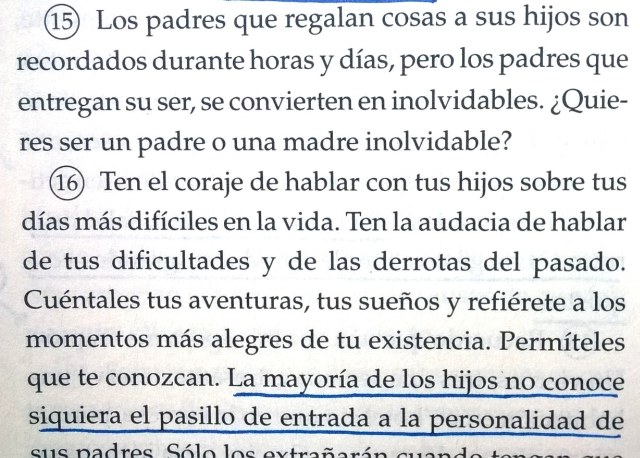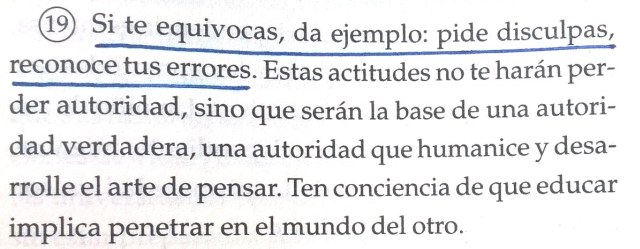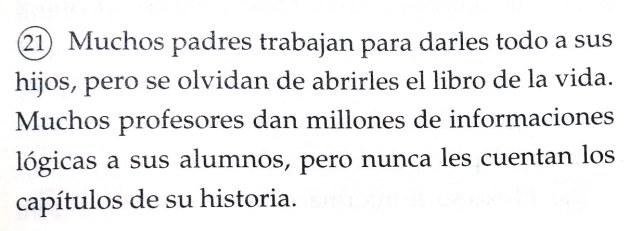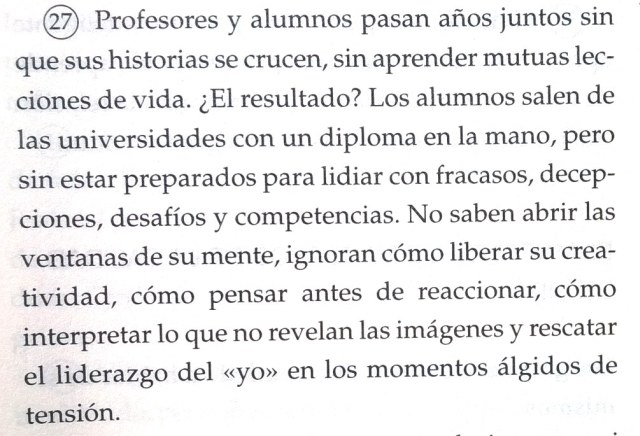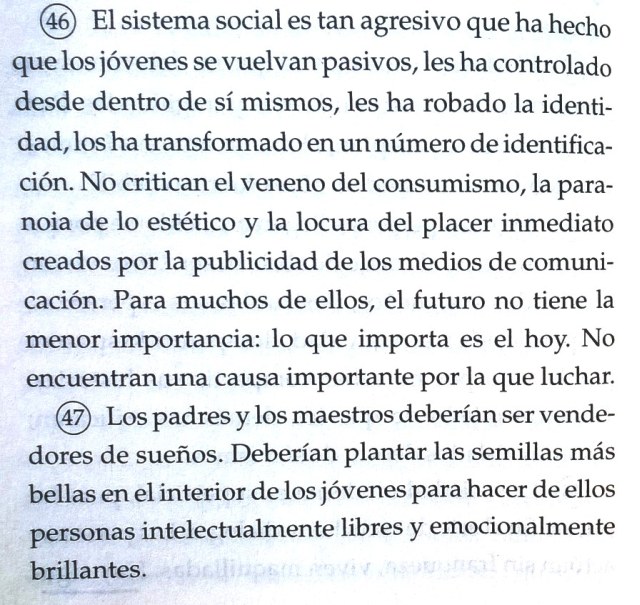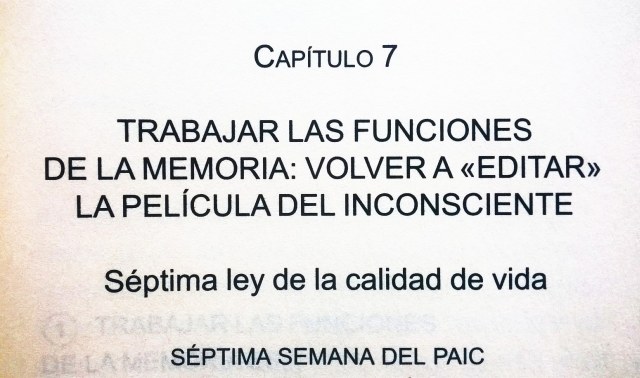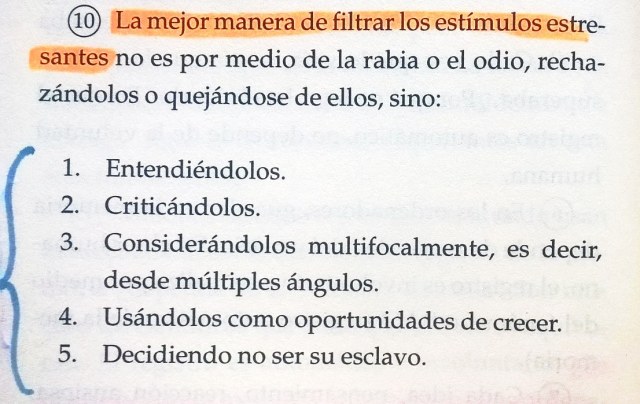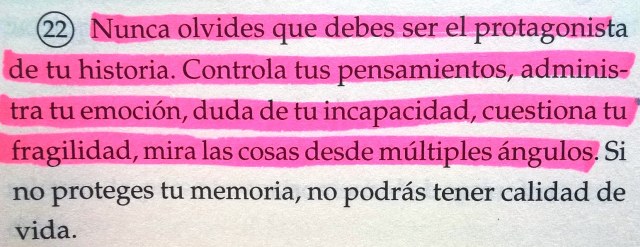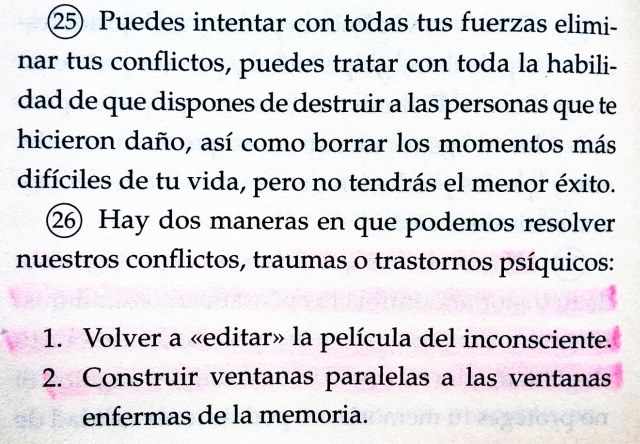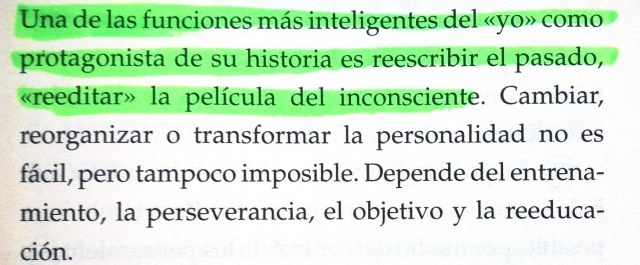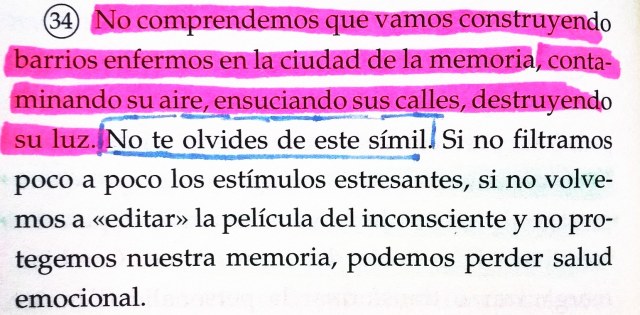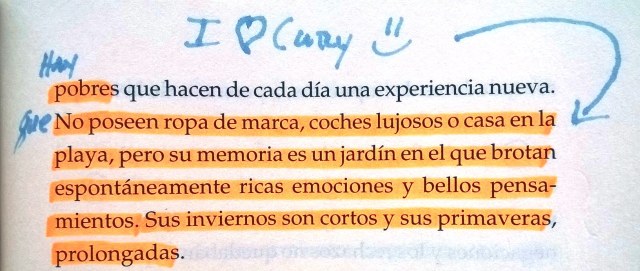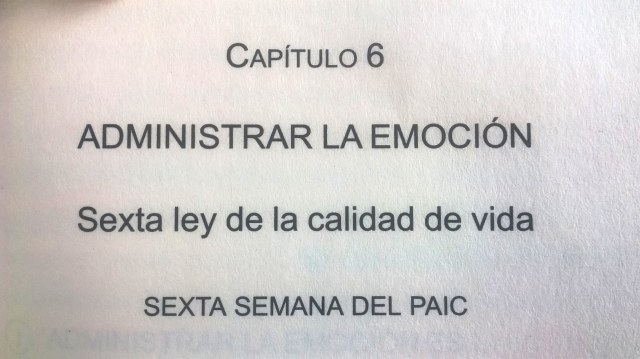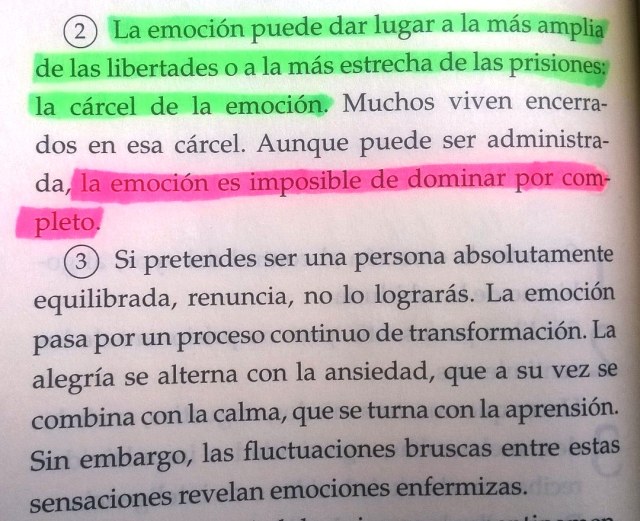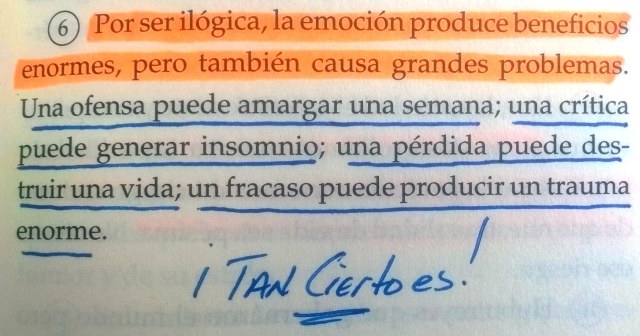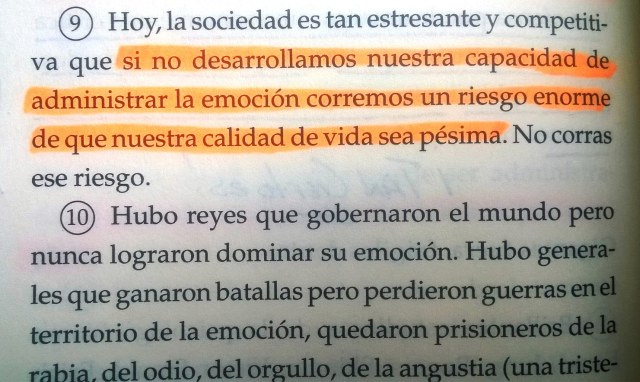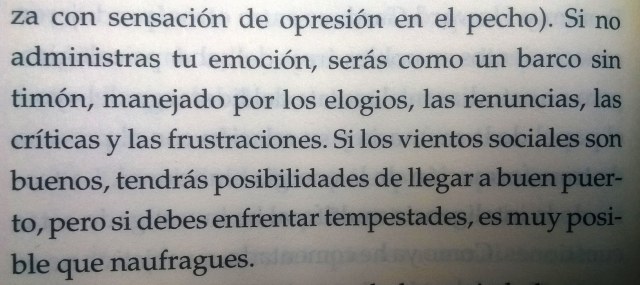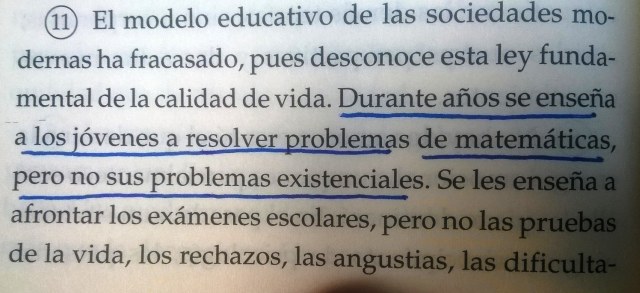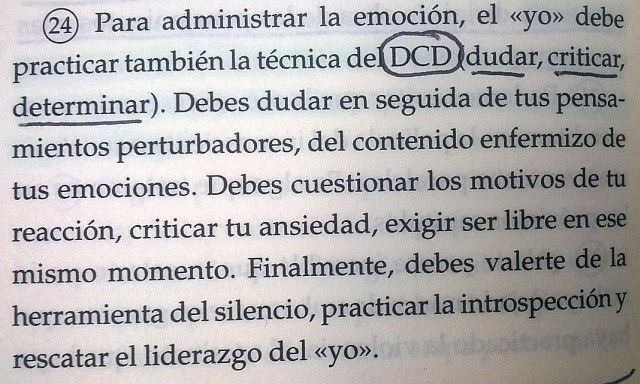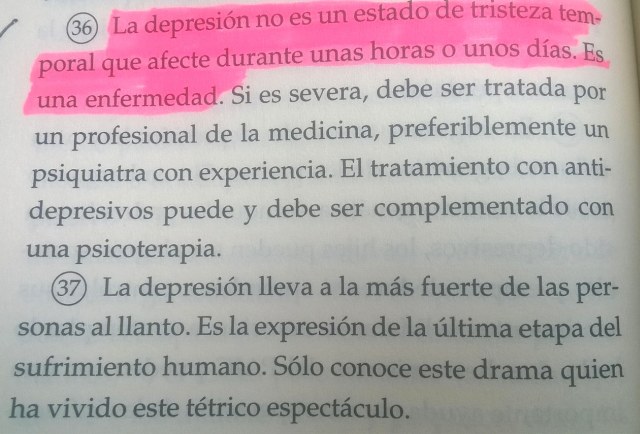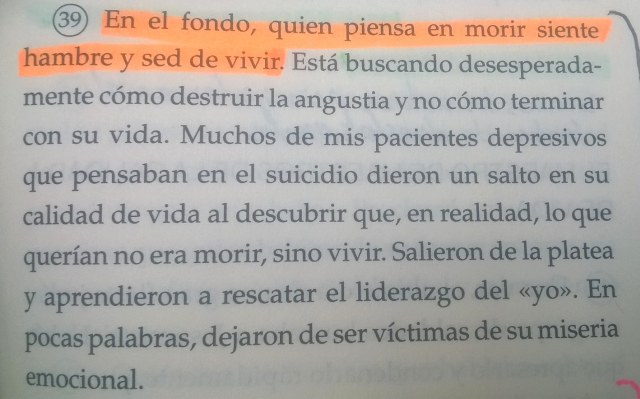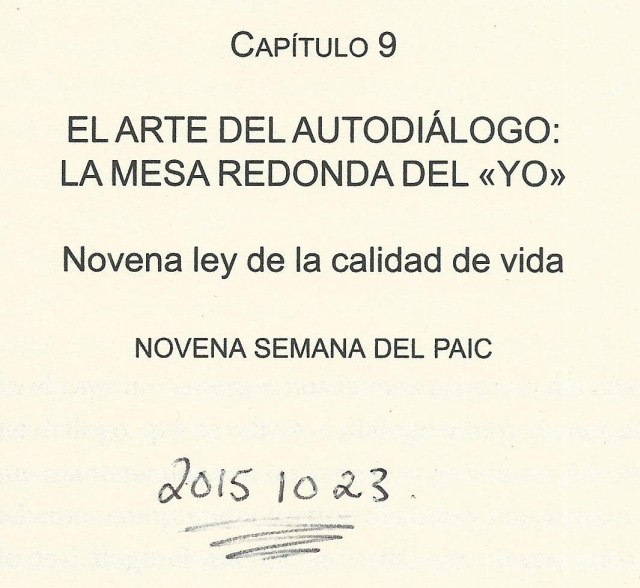
Chapter 9
THE ART OF SELF-DIALOGUE:
THE ROUND TABLE WITH ONESELF
Ninth law of quality of life
NINTH WEEK OF PROGRAM
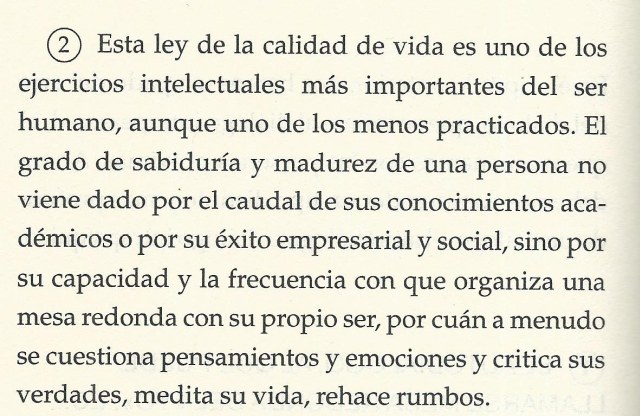
2. This law of the quality of life is one of the most important intellectual exercises for human beings. The amount of wisdom and maturity of someone has doesn’t come from their wealth of academic knowledge or from their business or social success; rather from the ability and frequency with which they organize a round table with themselves, by which they question their thoughts and emotions, and criticize what they believe is true, meditate on their lives, remake their paths.
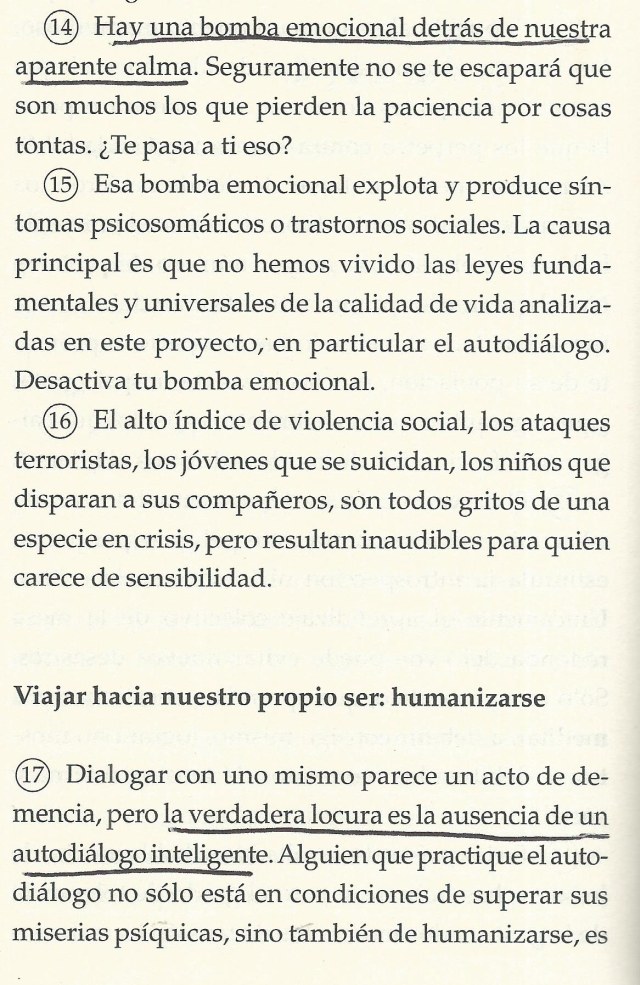
14. There is an emotional bomb behind our apparent calm. Surely, it doesn’t escape you that there are many who lose patience for silly things. Does this happen to you?
15. This emotional bomb explodes and produces psychosomatic symptoms or social problems. The principle cause is that we haven’t lived the fundamental and universal laws for quality of life, analyzed in this program, in particular with self dialogue. Disarm your emotional bomb.
16. The high incidence of social violence, terrorist attacks, youngsters who commit suicide, children who shoot their companions, are all shouts from a species in crisis, but are unheard by those who lack sensibility.
Traveling towards our own self: becoming humanized
17. Speaking with oneself seems to be an act of dementia, but real craziness is the absence of intelligent self diologue. Someone who practices auto diologue is not only in a position to overcome psychic misery, but also to humanize themselves…

19. The greatness of human beings lies in their capacity to be humble enough to put themselves in the shoes of others and understand what is behind their reactions…
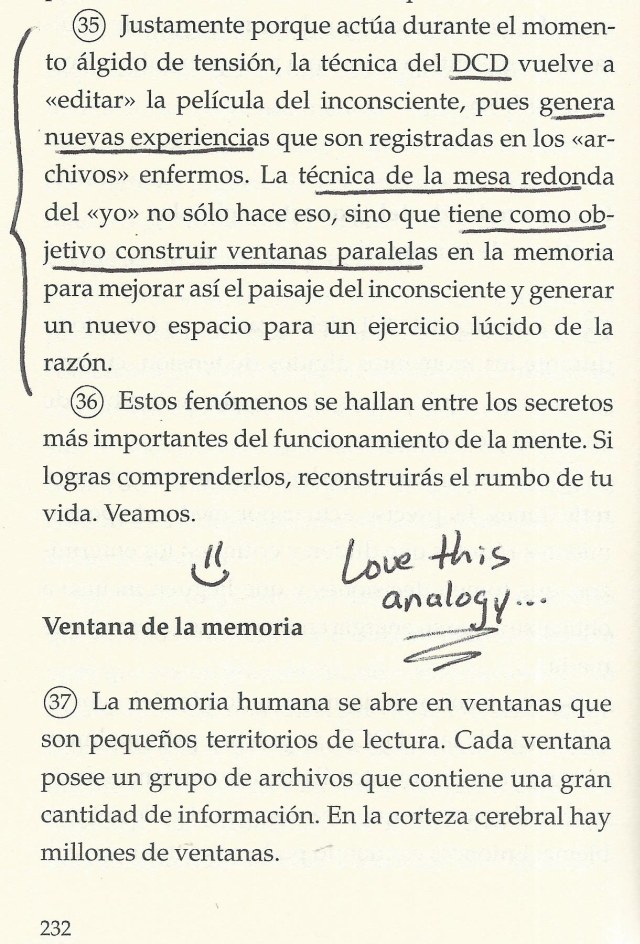
35. Precisely because it is activated during a moment charged with tension, the technique of DCD (Doubt, Criticize, Determine) “edits” the movie of our unconscious, generating new experiences registered in the sick, unhealthy “files.” The technique of the round table with oneself not only does the same thing, but also has as as a primary objective to open parallel windows in the memory to enhance the panorama of the unconscious and generate a new space exercising more lucid reasoning.
36. These phenomenon are among the most important secrets about how the mind works. If you are able to understand them, you will reconstruct your life’s direction. Let’s take a look.
Window of Memory
37. The human memory opens small windows which are read. Each window has an associated group of files containing a large quantity of information. En the cerebral cortex there are millions of windo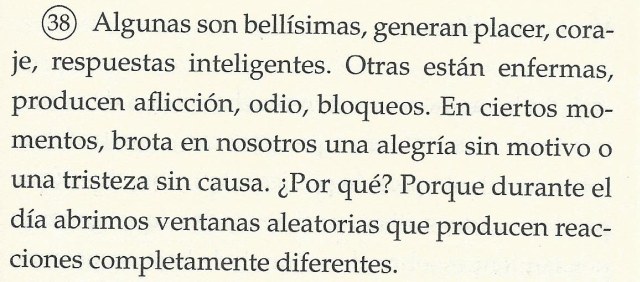
38. Some are beautiful, generating pleasure, courage, intelligent responses. Others are sickly, producing affliction, hate, blockage. At certain times, it brings out in us happiness for no reason or sadness without cause. Why? Because every day we open random windows producing completely different reactions.
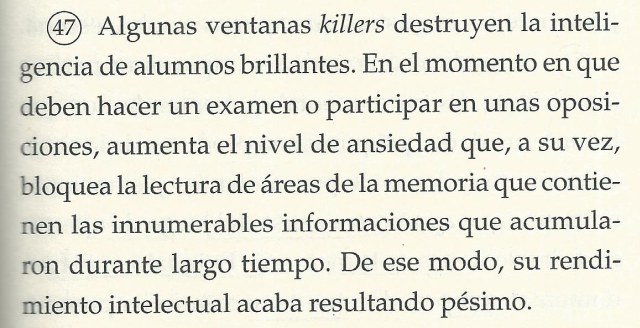
47. Some “killer” windows destroy the intelligence of the brightest students. Every time they have to present an exam or participate in a contest, their level of anxiety, which at the same time, blocks the readability of the areas containing the countless amount of information accumulated over such a long period of time. As a result, their intellectual capacity becomes terrible.
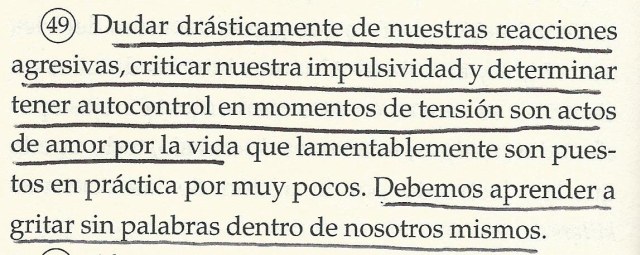
49. Drastically doubting our aggressive reactions, criticizing our impulsiveness, and determining to have self-control in tense moments, are acts of love for life, which are unfortunately not put into practice very often. We should learn to shout silently within ourselves.
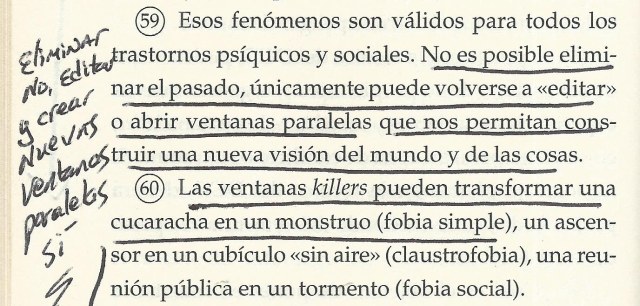
59. These phenomenon are valid for all psychic and social sicknesses. It isn’t possible to eliminate the past, only to “re-edit” it or open parallel windos which allow us to construct a new vision of the world and of things.
60. “Killer” windows can transform a cockroach into a monster (simple phobia), an elevator into a cubicle “without air” (claustrophobia), a meeting into a storm (social phobia).

67. If you have learned something about these secrets of how the mind works, you will never again think of life in the same way. Never again will you be a passive spectator in the theater of your mind.
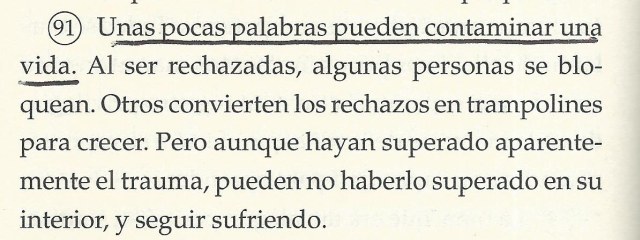
91. A few words can contaminate a life. Upon being rejected, some people are blocked. Others convert the rejection into trampolines to grow, but even if they have apparently overcome the trauma, it may be they have not fully overcome it in their own self, and continue to suffer.
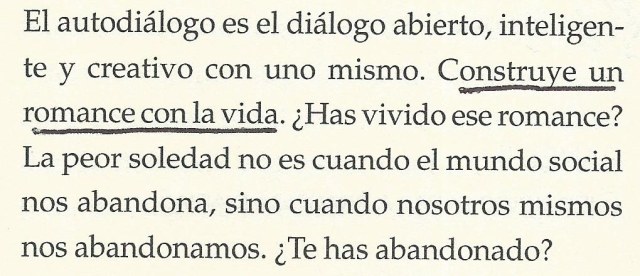
Self talk is an open dialogue, intelligent and creative with oneself. Construct a romance with life. Have you lived this romance? The worst solitude is not when the world abandons us, rather when we abandon ourselves. Have you abandoned yourself?

We should use DCD (Determine, Criticize, Determine) to “edit” the movie in our unconscious and the round table with ourselves to create parallel windows.
